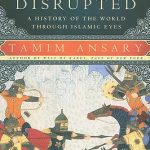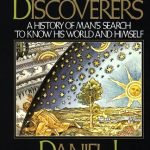I have been wanting to read a general overview of world history, so without any other ideas I picked up Cracking the AP World History Exam 2012, a general review book for high school students produced by The Princeton Review. I read about 200 pages of world history summaries, timelines, and key terms.
As was my goal, I feel I have received a reminder of the course of history over the past 8,000 years, with a general picture of how world history fits together: the themes of history, the progress of various developments, and the ways technology changed the way of life throughout history. The book is written “to the test,” so in some respects it misses the point of learning history for the sake of learning history. But on the other hand, it helped me recognize my own strengths and weaknesses, and it gave me ideas of what subjects I’d like to study in more depth, such as the following:
- Alexander the Great and Hellenism
- Ancient Chinese and Indian history and the Silk Road
- Ancient African civilizations
- Charlemagne
- Europe during the years before the Renaissance
- The Renaissance
- History of the Russian Czars
- Very early American colonies
- Napoleon and Waterloo
- Wiemar Republic and the Rise of the Third Reich
- WWI and WWII, especially Japanese Imperialism
- The Cold War (in general)
Cracking the AP World History Exam also has sample tests, practice questions, and descriptions of the AP Exam. I skipped those portions. I’m not learning to pass a test (I’m awful at those) but rather, I’m learning for the sake of knowing. At any rate, I’m sure this book would help those interested in preparing for the tests: it provides a great overview of history and the ways it ties together.
For my part, however I’m interested in any books you can recommend that cover World History in general and/or any of the subjects I mention above. I am certainly interested in continuing to increase my understanding of the history of the world. I’ve only just begun.





I am not a big fan of historical fiction but the following titles use certain of the periods you suggest as backgrounds:
– The Painted Veil (by W. Somerset Maugham)
– Anything Tintin (by Hergé): graphic novels sometimes set in imaginary worlds, but closely resembling actual places.
– The Crucible (by Arthur Miller) both for McCarthurism and early American colonies.
– The Scarlett Letter (Nathaniel Hawthorne).
– Anything Shakespeare for Renaissance.
– Samuel Pepy’s diary for 17th century England. This needs a lot of reading between the lines!
I hope you like some of these 🙂
Elena, I’m actually not that interested in historical fiction right now either. I’m hoping to find a great history book for learning more about these eras — nonfiction! Thanks for the suggestions, though, I’ve enjoy many of those!
I actually took the AP World History exam and used Cracking the AP World History Exam to study as the exam got closer. My first thought to your request was the textbooks we used for the class — Traditions and Encounters by Jerry H. Bentley and Herbert Ziegler — but that, of course, is neither brief nor focused on the particular subjects you bring up.
For the Silk Road, you might want to try The World That Trade Created by Kenneth Pomeranz and Steven Topik. I didn’t love the book, but it delves into historic and modern trade routes.
Most of what I’ve read on Chinese history has been focused on women in more recent times. Precious Records by Susan Mann focuses on women during the High Qing dynasty, but that’s as far back as I have gone.
William Shirer’s The Rise and Fall of the Third Reich is the most comprehensive book on the Rise of the Third Reich out there. Both it and Holocaust by Deborah Dwork and Robert Jan Van Pelt begin with an introduction to the Weimar Republic. Anything else I’ve read about World War II has focused on the Holocaust so I’m afraid I can’t be much help in that regard.
I’m not sure how useful you’d find The History of the World in 100 Objects. But perhaps quite interesting.
I’m disappointed that the Americas are only part of world history *after* they were discovered by Columbus. What about the history that went on there beforehand?
On that note, I highly recommend Charles C. Mann’s 1491, which was an amazing overview of the Americas before Columbus arrived. I also recommend the “sequel” to that, 1493, which was amazing in the breadth that it provided about how global the world became, so quickly, after America entered the picture. Really, really fascinating.
Aarti, This book did review the ancient civilizations of the Americas. I apologize if I made it sound like it didn’t. I didn’t mention that as one of the subjects I’m currently interested in, but the book you mention sounds fascinating! Thanks for the recommendation.
Love this idea of reading a history book! I took AP History and bits and pieces of it come back to me as I read about current events or books set in different historical eras. You inspired me – I think I’ll do the same. Thanks!